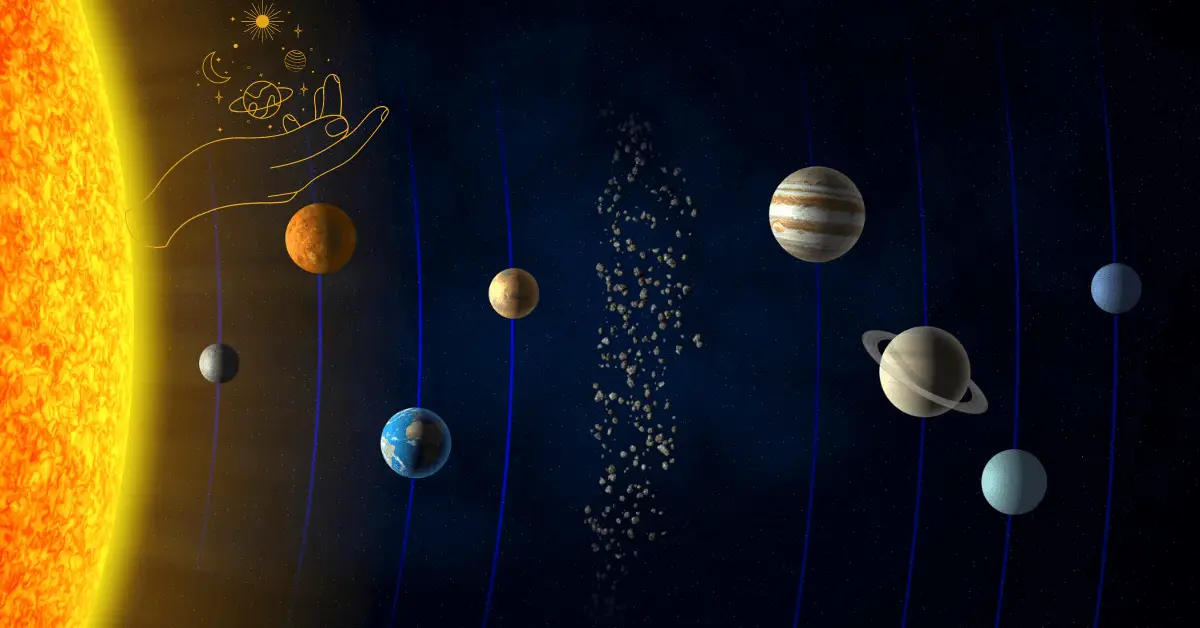The history of Astrology dates back to at least 2000 BC and is rooted in the tradition of calendar systems predicting seasonal changes and interpreting celestial cycles as signs of divine communication. Astrology is a technique that uses the movement and relative position of celestial bodies to divine people and surface events.
Many civilizations have a tradition of attaching important events to astronomical events and ancient civilizations such as China, India, and the Maya even developed complex systems to predict surface events through astronomical observations. It can be traced back to Mesopotamia in the 19th to 17th centuries BC and spread to ancient Greece, Rome, the Arab world, and Central and Western Europe. Contemporary Western astrology is often associated with the horoscope system, which is touted as being able to explain different personalities and predict significant life events based on the positions of celestial bodies; most professional astrologers rely on this system.
Astrology has long been regarded as an academic tradition and is prevalent in academia. It has close ties to astronomy, alchemy, meteorology, and medicine. Astrology was also famous in the political world; it was mentioned in many literary works, from Dante and Chaucer to Shakespeare, Lope de Vega, and Calderon de la Barca. I’ve been to astrology.
However, after the scientific revolution began, astrology has been widely questioned; it has been tested both theoretically and experimentally and proven to have no scientific validity or explanatory power. As a result, astrology lost its academic and theoretical status, and the number of people who believed in astrology decreased significantly.
Pseudoscience
Today, astrology is recognized as a pseudoscience. A long-term follow-up study started in 1958 on more than 2,000 people who were born in London, England, and were born within a few minutes of each other showed that These people are not similar to each other in terms of personality, occupation, intelligence, anxiety levels, and abilities in various skills. According to the theory of astrology, these people should be very similar to each other in these aspects; in addition, for more than 700 people, Research by fortune tellers shows that although these fortune tellers are pretty confident in their predictions, their predictions are no better than random guessing.
Astrological perspective
Astrology is based on actual astronomical phenomena (a few astrologers use imaginary astronomical phenomena such as super-Neptunian planets) and is applied to the development and application of human sciences. The question that astrology answers is why human beings are affected by the stars in the sky. What is the objective reality of the universe, what laws do celestial bodies move according to, and what happens inside stars? These are astronomical questions. Astrology will answer these questions.
Technologists are users rather than researchers. But in ancient times, astronomers and astrologers usually worked together to determine the positions of stars and use them for divination and prediction. The state in which astrology is applied to human beings is that humans only live at a certain point and time on the ground. What is the influence of this sky on the people or things born here at this time?
The perspective of astrology is geocentric, but its impact on people is centered on a specific location on the Earth’s surface. Because the sky phenomena at a particular place and time can be inferred, astrological predictions must be understood by another astrologer. Still, the interpreter will give similar or different interpretations because of the other understanding.
Astrological theories rely on human understanding
Because astrological theories rely on human understanding to extend, they often need more broad, definite, and precise terminology. An astrologer can only make assumptions based on his knowledge to gain market recognition and income.
However, the most basic astrological system, which can make predictions from complete astronomical observations, is usually too scientific to be understood or used by the public. Astrology has its terminology and symbols but has not yet completed a solid basic theory to allow astrologers to work without relying on intuition and “sixth sense” because human emotional needs are usually much higher than theoretical descriptions, and each astrologer must make predictions based on their understanding, just like doctors or stock analysts.
History of Astrology
Many ancient civilizations paid great attention to astronomical events, and the Indians, Chinese, and Mayans developed detailed astrological systems to predict events on Earth based on observations of the movement of celestial bodies.
In the West, astrology most commonly uses an astrological chart system to interpret a person’s personality and predict people’s lives based on their birth time corresponding to the position of the Sun, moon, and other celestial bodies at that time—future events for that person. Most professional astrologers (Western astrology) rely on these astrological systems.
Astrology can be traced back to at least 2000 BC
The historical development of astrology can be traced back to at least 2000 BC and has its roots in the development of the calendar system, which was used to predict seasonal changes and to interpret celestial cycles as prophecies and prophecies, Western Astrology, the formation of learning, began during the First Dynasty of Mesopotamia. The Chinese astrological system became more complete and detailed during the Zhou Dynasty.
After the 8th century BC, Yemeni astrology developed rapidly in the southern Arabian Peninsula and the Horn of Africa. After 332 BC, astrologers in Alexandria merged Greek astrology with Babylonian astrology and Egyptian Decani astrology to create horoscopic astrology. Alexander the Great’s eastward expedition to Asia indirectly contributed to the Hellenistic civilization. Still, the astrology developed in Mesopotamia began to spread to the West, from ancient Greece to Rome, and the East, influencing Indian civilization. This also enriched the Indian system of astrology.
Astrology in Rome
In Rome, astrology was associated with ‘Chaldean wisdom. After Alexandria came under Arab rule in the seventh century, astrological knowledge was passed on by Islamic scholars. Scholars who translated Greek astrological texts into Arabic and Persian. At the same time, Yemeni astrology was introduced to China’s Tang Dynasty (618 AD – 907 AD) and then to Tubo, Nanzhao, and other countries. At the time, had a profound influence on the cultures of various ethnic groups in East and Southeast Asia (especially Chinese culture). ) had a particular impact. In the twelfth century AD, Arabic astrological texts were introduced to Europe and translated into Latin. It was to help to start the European Renaissance. [34] In addition, the most critical astronomers from the 16th to 17th centuries included Tycho Brahe, Johannes Kepler, and Galileo.
In addition to being proficient in astronomy, they served as court astrologers. Astrology was cited in the literary works of famous Renaissance poets such as Dante Alighieri and Geoffrey Chaucer and playwrights such as Christopher Marlowe and William Shakespeare, among others.
History of Western Astrology
In 2778 BC, the most accurate calendar in ancient Egypt was born. The Egyptians recognized the relationship between Sirius’s rise and the Nile’s waters. They attempted to deduce political developments from the position of Sirius. The four sides of the ancient Egyptian pyramids were determined according to the four directions of the sky. They were supposed to pave the way for the Pharaoh’s soul to ascend to heaven after his death, and the Pharaoh’s soul was the North Star. Under Babylonian influence, they divided the zodiac into twelve constellations.
The development of astrology in Europe
Astrology (astrologia) and astronomy (astronomia) were not separated in ancient Greece. The Greeks used the Babylonian planetary names but used the Sun as their primary star. Greek astrology later influenced alchemy, Manichaeism, and Christianity.
Early Christian Views on Astrology
The early Christian views on astrology were quite contradictory. On the one hand, astrology believed that people’s destiny could be predicted, contrary to one of the most basic teachings of Christianity. On the other hand, the birth of Christ Jesus was predicted by an astronomical phenomenon. So, it appears God Himself was using astrology. Some in the church viewed astrology as an enemy, while others believed in astrology themselves.
Western astrology is mainly inherited from ancient Greek and Roman astrology. Before the Renaissance, astrology primarily served the royal family and the Holy See and was taught and studied in monasteries. With the demise of the Western Roman Empire, aliens invaded the European continent, destroying and burning Western classics and cultural relics. Even astrology was not immune, so the inheritance of Western astrology was also interrupted.
Astrology regained favor during the Renaissance, with many kings, popes, and Reformers believing in it. However, at this time, there began to be increasing criticisms of its rationality.
Renaissance
At the beginning of the Renaissance, Italian, Spanish, British, and other astrologers translated Arabic astrological books. In addition, they introduced the ancient Greek astrological knowledge. Astrological knowledge, which was preserved by the Arabs, made astrology prosperous in Europe. At that time, astrology was widely used. Astrology was used in everything from the emperor’s coronation to medical diagnosis and even the search for lost property. Astrology has become a general knowledge that explains all phenomena.
By this time, astronomers were often also astrologers. Tycho Brahe and Johannes Kepler were both astronomers and astrologers, and Kepler embraced astrology as an academic discipline. Although he does not believe that the positions of celestial bodies can be used to predict the occurrence of things on the Earth, he does believe in their influence on things on the Earth.
History of Astrology – 17th-century
By the 17th century, the Renaissance aroused the pursuit of scientific thought, and Europeans studied astrology from a new perspective. After the invention of the telescope, the paths of astronomy and astrology wholly separated. Copernicus, Galileo, and others published astronomical observations, proposed the heliocentric view, and opposed astrology from fundamental theories. Scientific thought continued to develop and grow in Europe, and people’s wisdom gradually became more enlightened. Astrology lost its original charm, becoming a folk technique and a tributary of mysticism.
History of Astrology in the West Today
In the 18th century, Europe experienced a series of revolutions, such as the French Revolution and the British Industrial Revolution. While changing people’s political thinking, it also further promoted the idea of scientific progress. At this time, astrology gave way to science in Europe, but it still influenced the people. Astrologers absorbed the spirit of scientific Research and quietly reformed astrology. The discovery of Uranus in 1781 and Neptune in 1846 and some asteroids gradually introduced astrology. Also, ancient astrological techniques were eliminated.
By the 19th century, the history of astrology appears to have begun famous. Astrology advocates founded occult societies to study astrology and other occult knowledge. Among them, the British astrologer Alan Leo played an essential role in popularizing modern astrology. He and his friends founded the Astrologer Magazine. They published astrology books. Also, held astrology courses and explained complex astrological in simple and easy terms. He was the one who created the sun signs used in the weekly horoscopes that newspapers and magazines now use. Beginning with Aaron Leo, astrology has become deeply rooted in people’s hearts in another form and has become increasingly popular.
Psychologist Carl Jung
History of astrology, In the 20th century, psychologist Carl Jung and others combined Western astrology with psychology. It was to analyze people’s personalities and psychology. It then led to the development of Western astrology as the mainstay today. At the same time, Alice Bailey mixed Western and Yemeni astrology. It was mixed to form Tantric astrology based on theosophy. It was practiced in New York, the United Kingdom, Greece, Southeast Asia, and India—development in the Northeast, the Arab world, and other places.
History of Astrology develops it modern times, mainly in two directions: creating new techniques and rediscovering ancient techniques. In terms of creating new techniques, it mainly introduced Pluto, which was discovered in 1930. Together with Neptune and Uranus, it is called the modern planet and plays an important role in modern astrology.




